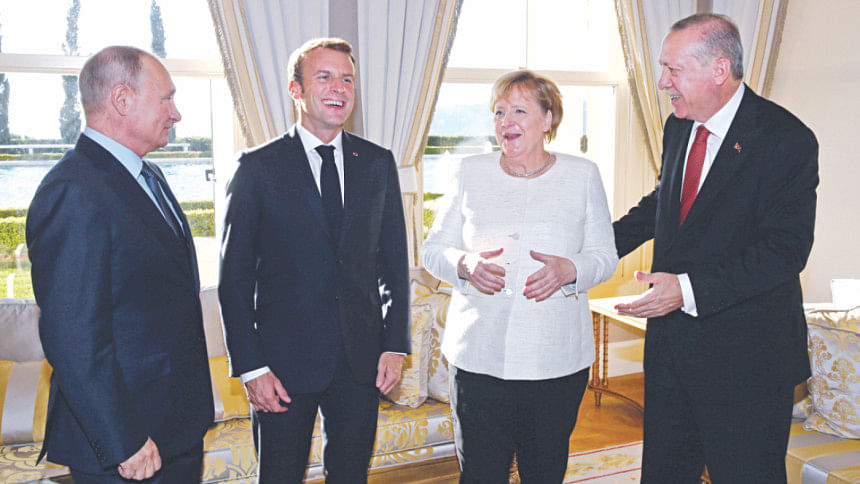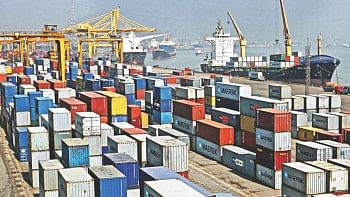Turkey hosts key Syria summit

The leaders of Turkey, Russia, France and Germany yesterday met to try to find a political solution to Syria's devastating civil war, provide access to humanitarian aid and salvage a fragile ceasefire in the country's last major rebel-held bastion.
Turkish President Recep Tayyip Erdogan welcomed Russia's Vladimir Putin, France's Emmanuel Macron and German Chancellor Angela Merkel to the summit on the Syrian conflict, in which more than 360,000 people have been killed since 2011.
"The eyes of the world are on us today... I hope we will act with a sincere and constructive understanding and will not fail to meet their expectations," Erdogan said as he opened the talks in Istanbul.
The meeting comes as violence continues to plague the country.
Britain-based Syrian Observatory for Human Rights yesterday said The Islamic State group killed at least 60 US-backed fighters battling to oust the jihadists from eastern Syria.
And it comes a day after seven civilians were killed by Syrian regime artillery fire in the northwestern province of Idlib, according to the Syrian Observatory for Human Rights, the highest death toll since a ceasefire was reached there last month.
Russia, which supports the regime of Syrian President Bashar al-Assad, and Turkey, which backs the rebels, agreed to create a buffer zone around Idlib, but violence has escalated dramatically leading up to the summit.
Turkey and Russia have held talks with Iran on the Syrian conflict in efforts that have often been greeted with suspicion in the West, but yesterday's summit will be the first to include the EU's two most significant leaders.
One key objective is to form a committee to draft Syria's post-war constitution, seen as a stepping stone to elections in the war-torn country.
A rival United Nations plan for a committee to write the constitution ran aground this week, with UN special envoy Staffan de Mistura, who is also attending the summit, saying Damascus rejected the UN having a role in the selection process.
The Istanbul talks will also discuss extending the ceasefire around Idlib, where aid groups have warned that a military offensive could spark one of the worst humanitarian disasters of the seven-year war.
Syria's opposition on Friday said it welcomed dialogue with Moscow.

 For all latest news, follow The Daily Star's Google News channel.
For all latest news, follow The Daily Star's Google News channel. 



Comments